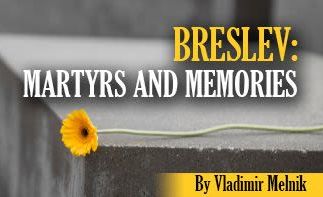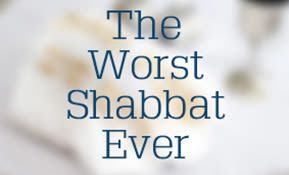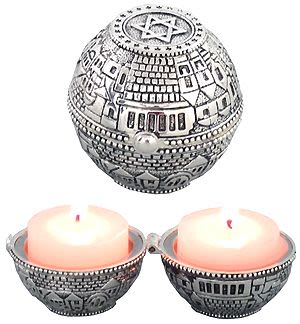
Rebbe Yitzchak Breiter’s Bitachon
Prior to World War II, hard times befell Poland and Rebbe Yitzchak was forced out of his job. His family was in shock, but he did not lose his calm demeanor…

Translated by Rabbi Lazer Brody
People ask me the difference between emuna (literally “faith”) and bitachon (literally “trust”). The easy way to understand it is that bitachon is the emuna when it comes to financial or personal security matters. In a way, you could say that bitachon is emuna under fire. Truly, trusting Hashem is a high level of belief in Hashem.
When I think of bitachon, Rebbe Yitzchak Breiter, may Hashem avenge his blood, comes to mind.
A well-known Breslever chassid and Holocaust martyr from Poland, Rebbe Yitzchak Breiter, may Hashem  avenge his blood, worked for years as an accountant at an important firm in Warsaw. Before the war, he made a fine living and had ample free time to serve Hashem peacefully while enjoying financial security.
avenge his blood, worked for years as an accountant at an important firm in Warsaw. Before the war, he made a fine living and had ample free time to serve Hashem peacefully while enjoying financial security.
Prior to World War II, hard times befell Poland and Rebbe Yitzchak was forced out of his job. His family was in shock, but he did not lose his calm demeanor. When he saw that he had no way to make a living, he sat himself down in the study hall and learned Torah and prayed with great diligence.
As his financial situation worsened, he intensified his Torah study and prayers. He knew what his job was. When Rebbe Yitzchak experienced hard times, he understood that he must make an effort to do his own job much better. And when the situation got even worse, he understood that perhaps he had more work to do.
Rebbe Yitzchak continued to forge ahead with his studies and Divine service, all the while relying on Hashem – completely trusting Him to sustain him and his family. During the entire financial crisis, while everyone else was suffering, Rebbe Yitzchak and his family received their sustenance through Divine Providence and literally supernatural miracles.
One day, when he was sitting alone in the study hall, a Jewish acquaintance came in and gave him a sizeable donation to support his family. Rebbe Yitzchak did not show any excitement, thanked the man and returned to his studies. The Jew, who had begun to leave, turned around, stood before Rebbe Yitzchak and said to him, “One question is bothering me. King David said in Psalms, ‘I was a lad and I have also aged and I have not seen a righteous person abandoned or his offspring requesting bread.’ If so, how can it be that a righteous person like yourself, who serves Hashem day and night, is forced to ask others for his sustenance?”
Rebbe Yitzchak said to him: “Go to the marketplace and find the shop of the wealthy Mr. X. Look at his son, standing at the entrance to the shop, shouting his wares and convincing passers-by to enter the store and buy their merchandise. The boy has to put in a lot of effort until he can entice somebody to buy from his father – isn't this a perfect example of ‘his offspring requesting bread?’ I, on the other hand, sit here in the study hall and serve Hashem. Did I ask you to come here? Have I ever asked you to support me? You came here of your own free will and gave me my sustenance…"
Our Sages say that when a person believes that Hashem sustains him, he merits the World to Come. The Talmud (Brachot, 4) explains that whoever recites Chapter 145 of Psalms three times a day merits the World to Come. Why? Because this chapter is imbued with emuna and trust in Hashem, Who feeds and sustains all: “You open Your hand and satisfy every living thing with favor.” (Psalms, 145:16). Accordingly, the main tool for livelihood is emuna. Conversely, worry is the main thing that causes a lack of sustenance.
Our Sages provide us with more information about the connection between emuna and livelihood: (from Sefer HaMiddot):
- – A person who has knowledge (emuna) will ultimately become wealthy.
- – Emuna increases a person's livelihood.
- – Constant joy (joy means emuna) is a conduit for success.
- – He who shares his sorrow with Heaven (pouring his heart out to Hashem in personal prayer) has his livelihood doubled. His livelihood flies to him like a bird, as well.
- – Emuna is good for livelihood. See Rashi on the verse in Psalms 37, "And graze emuna:" Rashi explains: Eat and make a livelihood in the merit of emuna.
- – A person who does not have livelihood should study Torah and then pray for his livelihood. Surely his prayers will be accepted.
- – Poverty stems from blasphemy.
- – Sadness (lack of emuna) creates a lack of livelihood.
We have seen that a person's main focus must be on emuna, through which he’ll merit his every need.









Tell us what you think!
Thank you for your comment!
It will be published after approval by the Editor.